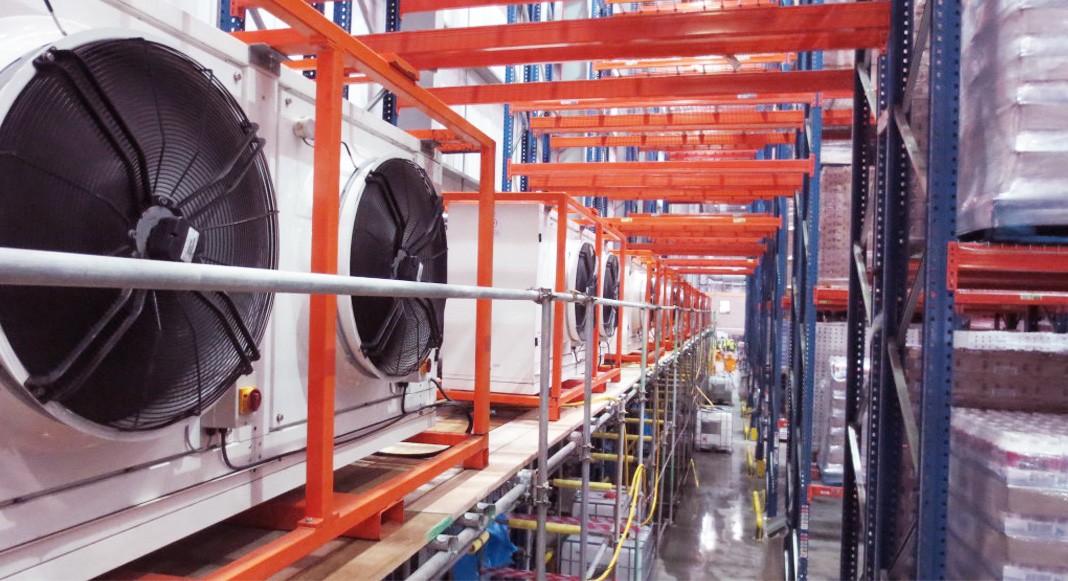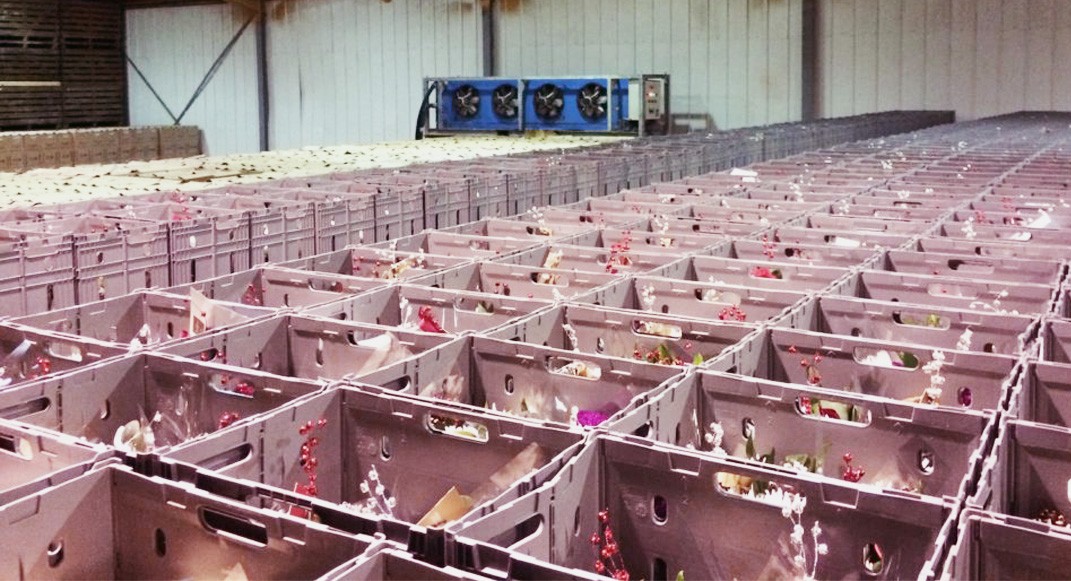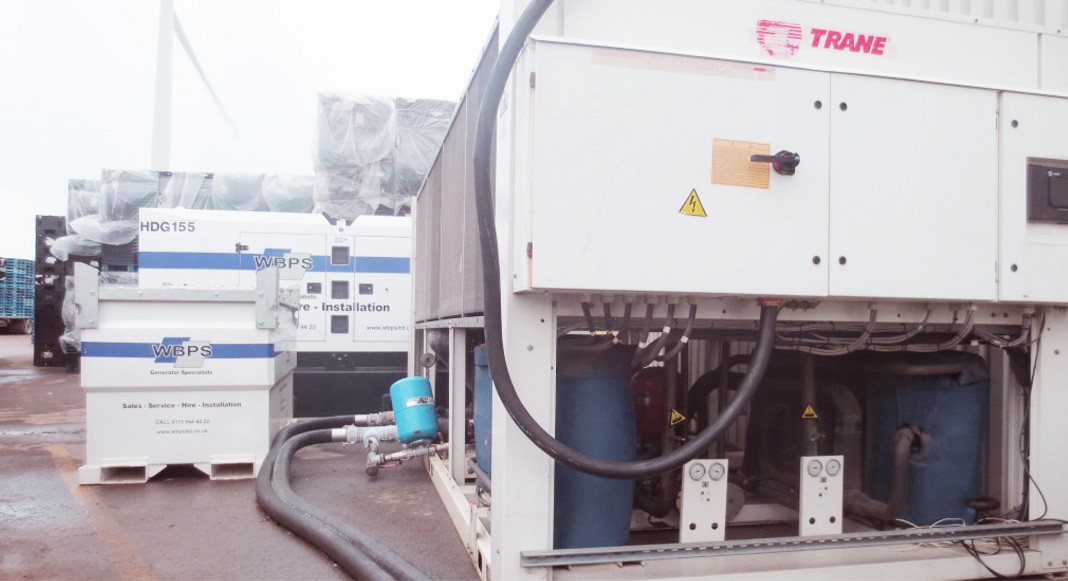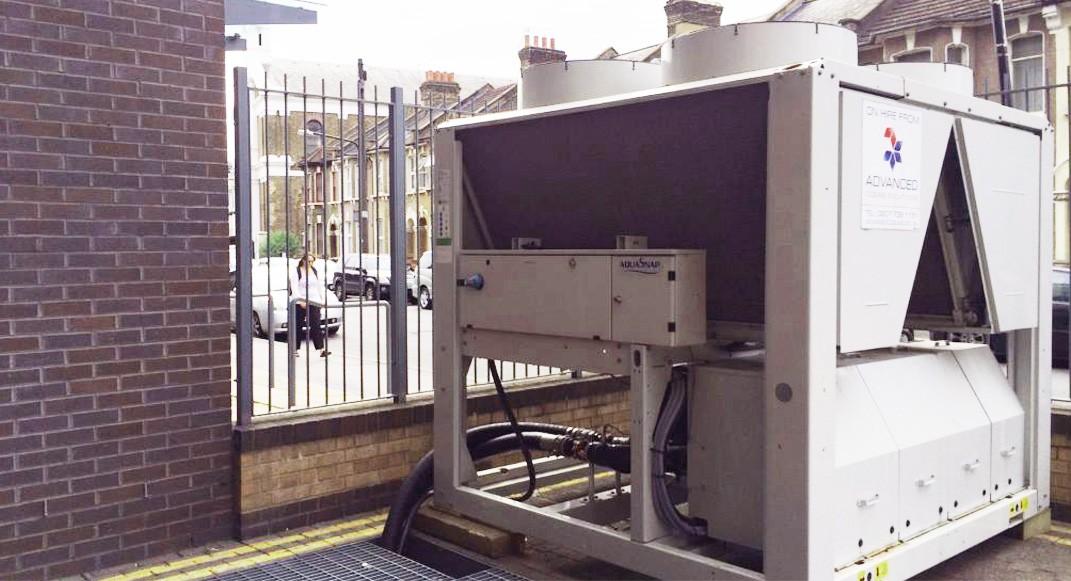Chiller maintenance- Improving HVAC Efficiencies
Chiller maintenance regimes are critical for maximising efficiencies from chillers and chilled water systems. Water chillers will probably represent one of the largest electrical loads on a HVAC system in a building. Good maintenance regimes, in many cases, can save substantial amounts of energy, going a good way to, or even surpassing chiller maintenance costs.
Maximise Design Efficiencies
Water flow rates are critical for the correct operation and long term reliability of a water chiller. To little flow and the machine will short cycle, (run for very short periods, frequently) possibly never running to full capacity where the machine can deliver its most efficient duty. Additional stress is also put on the working parts, increasing costs stemming from component failure, and in extreme cases shortening the operational lifetime of the plant. Low flow rates through the machines evaporator can also lead to localised freezing and bursts- mostly a problem in plate heat exchangers where water ways are very narrow.
Conversely, high flow rates can also lead to damage of the evaporator from the effects of vibration. Excessive vibration causes the copper tubes to chafe against baffles and other supports forming holes which let the refrigerant leak out, and then the water in. Refrigerant systems that have had an ingression of water are very expensive and time consuming to repair- not a good position to be in for something that is entirely avoidable.
Component Efficiencies
All chillers work on the basic refrigeration principle- the refrigeration cycle. Essentially moving energy from where you do’nt want it, the load, to another place for disposal, generally atmosphere. The less energy that is expended in the process of moving a given load is what defines efficiency, generally called COP- the relationship between the cooling capacity in RT to the energy consumed by the whole chiller in kW.
To maximise the efficiency of a refrigeration system as the manufacturer had intended it is critical that component parts are maintained in optimum running order. Main components such as the evaporator, condenser, refrigerant and compressor have a great bearing on this.
Condenser efficiency
Condensers should be cleaned regularly to ensure they are clear of blockages and dirt. Any corrosion should be treated and removed. In severe cases a metallised treatment such as Blygold can be used to restore a condensers efficiency. This type of treatment improves thermal transfer between the copper tubes of the condenser that carry the refrigerant, and the aluminium fins over which the air flows.
Evaporator efficiency
Evaporators require the correct levels of refrigerant to maximise efficiency. The level of refrigerant can be determined by calculated superheat and subcooling values, along with visual indicators such as site glasses. Different superheat values are specified for different machines. Those using electronic expansion valves and screw compressors generally run at lower superheat settings- around 3-5degrees at the evaporator outlet. It is important for efficiency and reliability that these settings are checked and adjusted as required.
Refrigerant charge
A shortage of refrigerant in the machine will also lower the refrigerant level in the evaporator (increase superheat) and as such it is critical that the machine is tested regularly for leaks with a view to maintaining a full refrigerant charge at all times. We would generally look for a full column of liquid at the expansion device without flash gas- as a rule of thumb a subcooling value of 12 Degrees is average, although some machines are designed to work with higher. Subcooling is also a good indicator of refrigerant levels inside a refrigeration system and would be calculated and logged as part of a service.
Leak testing regimes are also an important part of the FGas regulations which seek to limit the emissions of refrigerant gases, both direct and in-direct.
Compressor
The compressor is at the heart of the process. It is where the refrigeration cycle starts. Chiller maintenance checks should include operations to ascertain that it is pumping as efficiently as possible. Valve gear should be tested for tightness and that it is not letting-by. Pump down testing and discharge superheat are good indicators of condition. Higher discharge temperatures and superheat readings will be noted if there is let-by from the high to low side of a compressor. Loading mechanisms should also be checked regularly. If the compressor does not load fully, maximum efficiency is unlikely to be achieved.
Staging Multiple Chillers
Systems using multiple chillers on a common chilled water circuit can and should be optimised to ensure efficient operation. It is desirable that in such systems the chillers are staged in individually to meet the load as required. For example, in a system with two chillers, the chiller determined as the lead will stage in first reaching maximum load before the second unit starts. In this way the lead chiller is generally always running in its optimal state- at its most efficient.
Chiller staging as above can generally be achieved by a localised central controller which electronically links the machines for the purposes of control or a building management system, although in our experience neither tend to be applied properly. A good example of a central control system is the Carrier Comfort Network, which we have found to give very good stable control of multiple chillers.
Simple staging of chillers is possible using the local machine set-points and temperature control bands which control sensitivity . The lead chiller can be determined by setting it with a lower set-point and tighter control band. With the lag machine setpoint set outside this, operation only occurs once the lead has reached maximum load. Good results can often be reached with a little application to the task, and even if perfect control isn’t achieved, its at least a more efficient and reliable way of operating the plant.
Summary
So as can be seen there are a number of factors, external and local that have a considerable impact on the efficient and reliable operation of a water chiller. A company that is competent will understand all of these factors and put in place systems and work practices that address all the issues, mechanically, regulatory and environmental.








